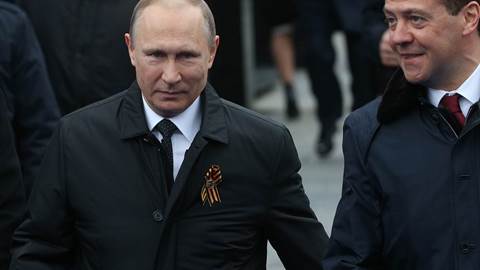OnPoint Subscriber Exclusive
The Big Picture brings together a range of PS commentaries to give readers a comprehensive understanding of topics in the news – and the deeper issues driving the news. The Big Question features concise contributor analysis and predictions on timely topics.

Debate: The Road to Cold War
Relations between Russia and the West are as strained now as they were in the Soviet Union’s heyday, with both sides investing heavily in upgrading their military capacity. Who is to blame?
